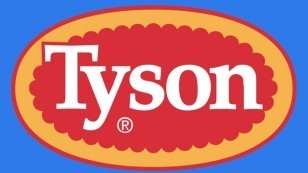MILWAUKEE - Tyson Foods Inc., the world's largest meat company, which has plants in Gainesville, Athens, Commerce and elsewhere in Georgia, says it has signed a new agreement with its creditors that puts up just about the entire company as collateral for its loans.
Tyson filed regulatory documents Wednesday that revealed the terms of the changes to the company's five-year revolving credit agreement.
The filing said the Springdale, Ark.-based company and its subsidiaries ``pledge substantially all of their assets to secure performance of the company's obligations under the credit agreement.'' The filing notes that before the amendment to the pact, only some of its assets were used as collateral.
Tyson spokesman Gary Mickelson said the amendments were worth $1 billion and give the company greater financial flexibility.
``We believe it also shows our lenders are willing to work with our company and have confidence in our ability to follow through on our key strategies,'' he said in an e-mail.
It's not uncommon for companies in this industry to put themselves up as collateral when they enter a down cycle, said Barclays Capital agribusiness analyst Christopher Bledsoe.
The meat industry is certainly in a down cycle. Volatile commodity prices have been hurting producers and squeezing their profit margins. Weak demand and an oversupply of meat on the market have been keeping pricing down, which makes it difficult for meat makers to recoup the higher costs. Producers have pledged to cut production, and those cuts are taking place, Bledsoe said.
He said it was good news the company got credit in this environment, in which lenders are tightening up amid global economic woes.
Pilgrim's Pride Corp., the nation's largest chicken producer, filed for Chapter 11 bankruptcy protection earlier this month, saying it was hobbled by debt and volatile feed prices and unable to get additional waivers from its lenders.
Bledsoe said he expected Tyson's stock to rise higher on the news Wednesday. Its shares were up 14 cents to $7.88 in afternoon trading. That tentativeness could result from concerns about leverage ratios in the new agreement, he said.
The new amendment raises the leverage ratio how much debt the company can have relative to its EBITA, earnings before interest, taxes and amortization for the next two quarters. That gives Tyson wiggle room as it tries to weather the downturn in the meat industry.
But after the next two quarters, the ratio will fall lower than it is now, according to filings.
``The hang-up is that the covenant leniency is only in place officially now for the next two quarters,'' he said.
But he said Tyson and others in the meat industry expect to push through these tough times in the next year as production cuts take effect and input prices moderate. Tyson could turn out not to need the extra leniency, he said.
Bledsoe noted that the cost of borrowing increased about 1 penny a share under the new agreement. The company is also paying a one-time fee of $5 million to lenders connected to the new agreement.
Last month, Moody's Investors Service downgraded Tyson Foods' credit rating on concerns that the company's chicken business will lose more money and that its acquisition strategy will limit its available cash.
The company said last month in announcing its fourth-quarter earnings that gains in its beef and pork units helped profit rise 50 percent, but high grain costs hurt its chicken business, leading to a $91 million operating loss in that sector.
Tyson President and Chief Executive Richard L. Bond said he expects the company to ``lose some significant dollars'' for the first quarter of 2009 in its poultry segment. In the pork business, Bond said he does not expect any record-setting quarters in fiscal 2009 but does expect the segment to do well.
(Copyright 2008 by The Associated Press. All Rights Reserved.)
Wednesday
October 9th, 2024
4:26PM









